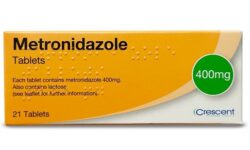Benefits of Running
In today’s fast-paced and sedentary lifestyle, maintaining a healthy and active lifestyle has never been more crucial. Whether you are a fitness enthusiast or considering improving your overall well-being, incorporating regular exercise into your routine is essential. Apart from the obvious physical benefits, such as improved cardiovascular health and weight management, exercise has a profound impact on mental well-being and strengthens bones and joints. So, let’s delve into the incredible advantages of incorporating exercise into your daily routine and see how it can transform your life for the better.
Improved Cardiovascular Health
Running is not only a popular form of exercise, but it also offers numerous benefits for improved cardiovascular health. Regular running has proven to be highly effective in reducing the risk of cardiovascular diseases such as heart attacks and strokes. The physical exertion of running strengthens the heart muscle, resulting in increased blood circulation and improved oxygen delivery to the body’s cells.
One of the major benefits of running for cardiovascular health is the improvement in overall cardiovascular fitness. Engaging in regular running sessions helps to increase the heart’s efficiency in pumping blood, thereby reducing the resting heart rate. This means that the heart doesn’t have to work as hard to supply blood to the body during periods of rest or physical activity.
Another important aspect of running is its ability to lower blood pressure. High blood pressure is a significant risk factor for many cardiovascular diseases. Studies have shown that regular running can effectively reduce blood pressure levels, helping to maintain a healthy cardiovascular system and prevent the development of hypertension.
- Furthermore, running has been found to increase the levels of good cholesterol (HDL) while decreasing the levels of bad cholesterol (LDL) in the blood. This lipid profile improvement is crucial for preventing the accumulation of plaque in the arteries and reducing the risk of coronary artery disease.
| Benefits of Running for Cardiovascular Health: |
|---|
| The heart becomes stronger and more efficient. |
| Improved blood circulation and oxygen delivery. |
| Reduced resting heart rate. |
| Lowered blood pressure levels. |
| Lowers bad cholesterol (LDL) and increases good cholesterol (HDL). |
In addition to these direct cardiovascular benefits, running also aids in weight management and fat loss. Running is a highly effective calorie-burning exercise that helps to promote weight loss when combined with a balanced diet. Regular running sessions can increase the body’s metabolic rate, leading to the burning of additional calories throughout the day.
The impact of running on mental well-being should not be overlooked either. Running has been proven to be an excellent stress reliever, as it stimulates the release of endorphins – the body’s natural feel-good hormones. Regular running can help to reduce symptoms of anxiety and depression, improve mood and self-esteem, and promote overall mental well-being.
All in all, incorporating running into your exercise routine can bring about a plethora of benefits for improved cardiovascular health. Whether you are looking to strengthen your heart, lower blood pressure, improve cholesterol levels, manage weight, or enhance mental well-being, running is a fantastic choice that can positively impact various aspects of your overall health.
Weight Management And Fat Loss
Running is an excellent form of exercise that offers numerous benefits, including weight management and fat loss. Whether you are looking to shed a few extra pounds or maintain a healthy weight, incorporating running into your fitness routine can help you achieve your goals.
Weight management: Running is one of the most effective ways to manage weight as it helps burn calories and increase metabolism. It is a high-intensity aerobic exercise that engages multiple muscle groups, resulting in a higher calorie expenditure compared to other forms of physical activity. Regular running can help create a calorie deficit, leading to gradual weight loss and improved body composition.
Fat loss: Running is particularly beneficial for fat loss, as it primarily targets stored body fat. When you run, your body taps into its fat stores to fuel the exercise. As your body becomes more efficient at utilizing fat as a source of energy, you’ll start to see a reduction in body fat percentage. Incorporating interval training and hill sprints can further enhance fat-burning capabilities.
- Benefits of running for weight management and fat loss:
- – Running helps burn calories and increase metabolism.
- – It creates a calorie deficit, leading to gradual weight loss.
- – Running primarily targets stored body fat.
- – Regular running improves body composition.
- – Interval training and hill sprints enhance fat-burning capabilities.
Furthermore, running not only aids in weight management and fat loss but also promotes overall health and well-being. The cardiovascular benefits of running improve heart health, reduce the risk of chronic diseases such as hypertension and diabetes, and increase cardiovascular endurance. Running also strengthens bones and joints, making them less prone to osteoporosis and injuries.
| CARDIOVASCULAR BENEFITS OF RUNNING | BONE AND JOINT HEALTH |
|---|---|
| Improves heart health | Strengthens bones and joints |
| Reduces the risk of hypertension | Decreases the risk of osteoporosis |
| Enhances cardiovascular endurance | Prevents joint-related injuries |
In conclusion, running is an effective and accessible form of exercise for weight management and fat loss. Incorporating regular running sessions into your fitness routine can help you achieve your desired weight and improve body composition. Additionally, the numerous cardiovascular and musculoskeletal benefits make running a worthwhile activity to enhance overall health. Lace up your running shoes and hit the pavement to enjoy all the benefits that running has to offer!
Enhanced Mental Well-Being
Running is not just beneficial for our physical health, but it also has a profound impact on our mental well-being. Regular running can be a great way to alleviate stress, reduce anxiety and depression, and boost overall mood. When we engage in physical activities like running, our brain releases endorphins, also known as “feel-good” hormones, that help improve our mood and promote feelings of happiness and relaxation.
Furthermore, running can help increase our self-confidence and self-esteem. When we set fitness goals and achieve them through consistent running, we develop a sense of accomplishment and become more confident in our abilities. Running can also provide a much-needed escape from the daily stresses of life, allowing us to clear our minds, focus on the present moment, and find a sense of inner peace.
In addition to the immediate mental benefits, running regularly can also have long-term positive effects on our cognitive function. Studies have shown that aerobic exercises like running can improve memory, attention, and overall cognitive performance. The increased blood flow to the brain during exercise promotes the growth of new neurons and enhances neural connections, ultimately leading to improved brain function.
So, if you’re looking to enhance your mental well-being, consider incorporating running into your daily routine. Not only will it improve your physical fitness, but it will also provide you with a wide range of mental health benefits.
Strengthens Bones And Joints
Running is not only a great form of cardiovascular exercise but also has numerous benefits for the health of our bones and joints. Regular running can help strengthen bones and joints, making them more resilient and less prone to injuries. Whether you are a long-distance runner or a casual jogger, incorporating running into your fitness routine can have significant long-term benefits for your skeletal system.
One of the primary ways that running strengthens bones is by applying stress to them. As you run, the impact forces exerted on your bones stimulate them to adapt and become stronger. This stress helps stimulate the growth of new bone tissue, increasing bone density and reducing the risk of conditions like osteoporosis. The repetitive impact of running promotes the deposition of minerals in the bones, making them denser and less susceptible to fractures.
In addition to increasing bone density, running also strengthens the joints. The movement and impact involved in running help to lubricate the joints, ensuring they remain flexible and functional. Regular running can also promote the production of synovial fluid, which acts as a lubricant and shock absorber in the joints. This can help prevent conditions like osteoarthritis and reduce joint pain and stiffness.
- Running helps to strengthen the bones and joints.
- Regular running can increase bone density and reduce the risk of osteoporosis.
- The impact of running stimulates the production of synovial fluid, promoting joint lubrication and flexibility.
| Benefits of Running for Bones and Joints |
|---|
| Increased bone density |
| Reduced risk of osteoporosis |
| Improved joint lubrication |
| Prevention of osteoarthritis |
| Reduced joint pain and stiffness |
Overall, running is an excellent activity for strengthening both bones and joints. However, it’s important to note that proper form and technique, as well as gradual progression, are crucial in avoiding potential injuries. If you are new to running or have any pre-existing joint conditions, it’s always a good idea to consult with a healthcare professional or a knowledgeable fitness trainer to develop a safe and effective running plan tailored to your specific needs.
Frequently Asked Questions
Question 1: How does exercise improve cardiovascular health?
Exercise improves cardiovascular health by strengthening the heart muscle, increasing blood flow, and reducing the risk of heart disease. It also lowers blood pressure, improves cholesterol levels, and helps maintain a healthy weight, all of which contribute to a healthier heart.
Question 2: Can exercise help with weight management and fat loss?
Yes, exercise is a crucial component of weight management and fat loss. Regular physical activity helps burn calories, increases metabolism, and builds lean muscle mass, which leads to improved weight management and facilitates fat loss.
Question 3: How does exercise enhance mental well-being?
Exercise enhances mental well-being by increasing the production of endorphins, which are known as “feel-good” hormones. It helps reduce the symptoms of stress, anxiety, and depression, improves mood, boosts self-confidence and self-esteem, and promotes better sleep.
Question 4: Does exercise strengthen bones and joints?
Yes, exercise plays a crucial role in strengthening bones and joints. Weight-bearing exercises, such as walking, running, and weightlifting, stimulate bone growth and prevent conditions like osteoporosis. Additionally, regular exercise helps improve joint mobility and flexibility, reducing the risk of joint-related conditions.
Question 5: What are the other benefits of exercise for overall health?
Aside from the mentioned benefits, exercise also helps control blood sugar levels, reduces the risk of chronic diseases such as diabetes and certain types of cancer, improves immune function, boosts energy levels, and promotes a longer and healthier life.
Question 6: How much exercise should one engage in for optimal results?
The American Heart Association recommends at least 150 minutes of moderate-intensity aerobic activity or 75 minutes of vigorous-intensity aerobic activity per week. Additionally, strength training exercises should be performed at least twice a week to strengthen muscles and maintain bone density.
Question 7: Can exercise be tailored to individual needs and preferences?
Absolutely! Exercise can be tailored to individual needs and preferences. There are various forms of physical activity to choose from, such as jogging, swimming, cycling, dancing, or participating in team sports. It is important to find an activity that you enjoy and can incorporate into your lifestyle for long-term adherence and maximum benefits.



